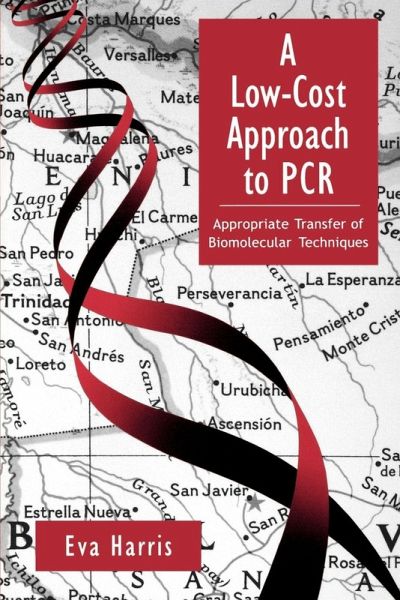
A Low-Cost Approach to PCR
Appropriate Transfer of Biomolecular Techniques

PAYBACK Punkte
88 °P sammeln!
The polymerase chain reaction (PCR) is a technique used to replicate specific pieces of DNA millions of times, which permits the detection and analysis of minute amounts of nucleic acids. Since its introduction in the late 1980s, this technique has been applied not only in molecular biology research but also in fields as diverse as anthropology, phylogeny, and forensics. However, despite the large impact of PCR, many of its applications remain within the confines of research and the academic environment. Now, in A Low-Cost Approach to PCR: Appropriate Transfer of Biomolecular Techniques, Dr. E...
The polymerase chain reaction (PCR) is a technique used to replicate specific pieces of DNA millions of times, which permits the detection and analysis of minute amounts of nucleic acids. Since its introduction in the late 1980s, this technique has been applied not only in molecular biology research but also in fields as diverse as anthropology, phylogeny, and forensics. However, despite the large impact of PCR, many of its applications remain within the confines of research and the academic environment. Now, in A Low-Cost Approach to PCR: Appropriate Transfer of Biomolecular Techniques, Dr. Eva Harris makes this elegantly simple technique more accessible to researchers, physicians, and laboratory workers throughout the world. She provides a description of the theoretical basis of the technique, the practical details of the method, and the philosophy behind the technology transfer program that she developed over the last ten years. The book serves as a guide for potential users in developing countries and for scientists in developed countries who may wish to work abroad. In addition, the low-cost approach outlined in this book can be useful for high school, undergraduate, or continuing education programs in the United States. While the specific applications of PCR outlined in the book are immediately useful to the study of infectious diseases, the approach presented can be generalized to a number of other technologies and situations. The book will help laboratories in many areas of the world generate information on site for use by physicians, epidemiologists, public health workers, and health policy professionals to develop new strategies for disease control.




